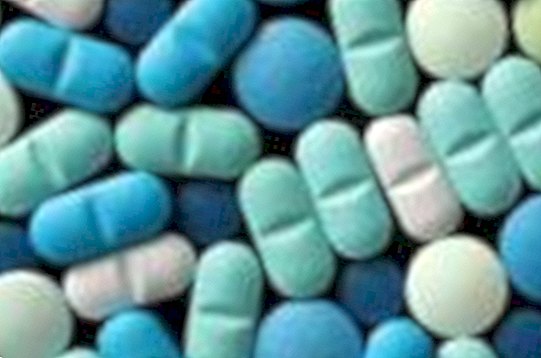Daily doping with tablets

ChroniquesDuVasteMonde-woman.de: In Germany at least 1.9 million people are addicted to medication. 70 percent of them are women. Why especially you?
Renate Walter-Hamann: Women want to work. They are not about getting intoxicated, they want to overcome their problems. Problems that arise through double and triple burden, responsibility for children, requirements in the job. That's why they have different consumption patterns than men. Instead of drinking excessively, for example, they unobtrusively swallow tablets silently and quietly - and continue to work.
ChroniquesDuVasteMonde-woman.de: Statistics show that the number of drug-dependent women increases with age. How come?
Renate Walter-Hamann: Women between the ages of 40 and 50 experience a decade that challenges them greatly. Their living conditions change, the children leave the house, new professional challenges arise, the menopause announces itself, the body begins to change. In addition, our society still celebrates youthfulness, energy, perfection. Getting older is hardly seen positively, but only with the word "less": less attractiveness, less strength, less ability. Many women take medicines for this "less". Dopen yourself for everyday life. It would be better to deal with the changes positively, to learn to age well. After all, we can not stop time - not even with pills.
ChroniquesDuVasteMonde-woman.de: Does the current crisis situation further reinforce this everyday doping?
Renate Walter-Hamann: The fears of job loss and social decline are increasing. But the trend to increase their own performance through medication, has been observed for some time. For example, preparations approved for certain indications, such as Ritalin for ADHD (Attention Deficit Hyperactivity Disorder), are used to induce arousal. And the pharmaceutical industry is always bringing to market new ways to improve mental and physical strength, reduce anxiety and alleviate depressive moods. The right pill for every problem.
ChroniquesDuVasteMonde-woman.de: So is the intake of medication so downplayed?
Renate Walter-Hamann: Absolutely. The boundaries between drugs to treat disease and lifestyle blur. And the intensive advertising for over-the-counter medicines and "functional food" signals to us how natural and harmless it is to "optimize" ourselves with a little bit of chemistry to always be in top shape. It is no wonder that more and more people are turning to medicines for personal problems, increasing workload, increasing deadline pressure and fear of losing the job! According to a recent survey by the DAK, more than two million people in Germany are already using drugs to maintain or increase their performance. Everyday doping will become the big problem of the future.
ChroniquesDuVasteMonde-woman.de: What role do physicians play in this?
Renate Walter-Hamann: An important, especially in women. They perceive disorders of their condition stronger and faster than men and go to the doctor rather. Unfortunately, studies show that there are still too many doctors who prescribe drugs very uncritically. A short-term prescription may sometimes be useful, but not every mood or sleep disorder needs to be treated with a drug. It would be better, the doctor would look for together with the patient for other solutions. In mild depression, for example, exercise and exercise can often help as well as medications.
ChroniquesDuVasteMonde-woman.de: But a woman who has health and maybe emotional problems, who sleeps badly and feels drained, reaches for every straw ...
Renate Walter-Hamann: Sure. And doctors always get a vote of trust. Nevertheless, fast prescribing is problematic. A doctor is also responsible for the recipes he issues. He should therefore never prescribe drugs too fast and over a long period of time, especially not those that are known to have an addictive potential. These include sleeping pills and tranquillizers containing benzodiazepines and barbiturates, drugs containing codeine, certain painkillers, psychostimulants, but also Z drugs such as zopiclone, zolpidem and zaleplon. In any case, he should comprehensively inform about possible side effects.
ChroniquesDuVasteMonde-woman.de: And if the doctor does not?
Renate Walter-Hamann: Then it makes sense to look for someone else to trust. A doctor who is too pharmacophobic and pulls out the prescription block too fast is not good. It would be better to show alternatives. Women should learn to take care of themselves. You should become an advocate of your own health - not just passively swallowing pills.
ChroniquesDuVasteMonde-woman.de: And if the doctor prescribes sedative despite everything?
Renate Walter-Hamann: Then women should take care in their own interest that he does not prescribe benzodiazepines immediately and that they do not take them too long. For benzodiazepines, even at a low dose of one or two tablets a day, symptoms of addiction may appear after just a few weeks. If the remedy is discontinued, problems such as sleep disturbances, fears, or restlessness for which the drug was prescribed are often more severe than before. The women then believe that they need the remedy. That's why the addictiveness is so great. And the danger of relapses. With tablet dependence, withdrawal is more difficult and more protracted than with heroin addiction.
ChroniquesDuVasteMonde-woman.de: What can women do if they feel they are turning into addiction?
Renate Walter-Hamann: You should not be afraid to go to a psychosocial counseling center. The counselors can clarify how serious the danger already is and offer or mediate help depending on the situation. And of course it always helps to talk to family, friends or support groups. Those who are not alone can better withstand difficult and stressful situations in life. A stable personal network is therefore a good investment for the future.
Renate Walter-Hamann is Section Leader Addiction Help at the German Caritas Association in Freiburg.










